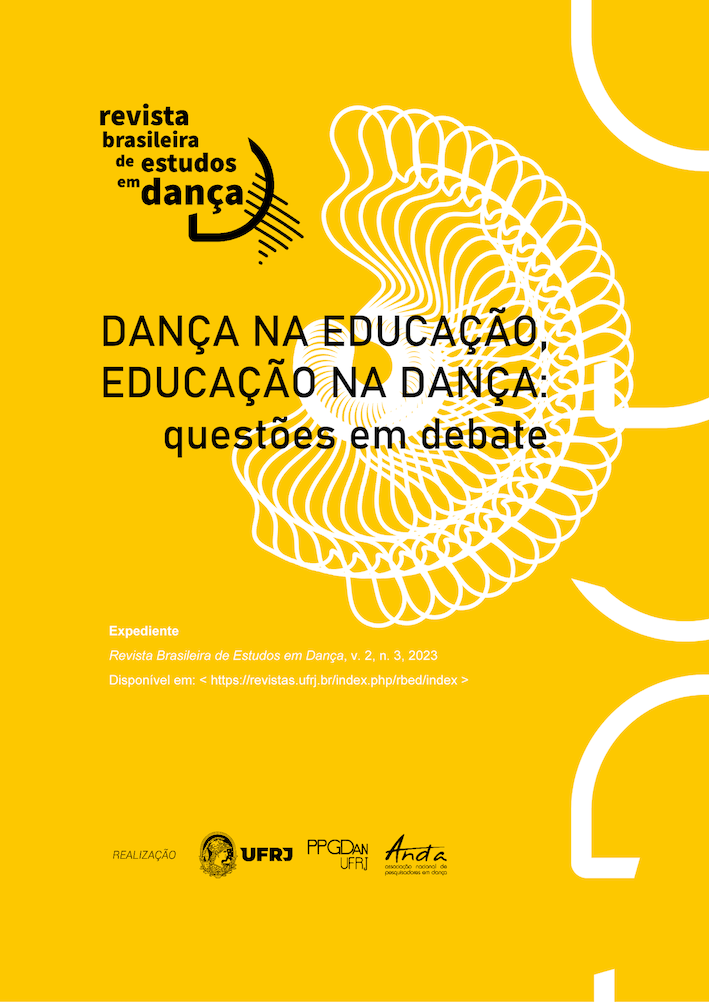This is an outdated version published on 2023-12-01. Read the most recent version.
The Bachata dance in Brazil:
a State of art four contexts of knowledge production
DOI:
https://doi.org/10.58786/rbed.2023.v1.n3.58809Keywords:
Dança-Bachata, Estado da Arte, Danças de Salão.Abstract
This duo dance work aims to understand how the bachata dance has been approached, in the research referring to the historically said ballroom dances, in four contexts of contemporary knowledge production in our country. In the methodological scope, this study is a qualitative research in education, and used the exploratory research method, type State of art to assimilate the referred investigated phenomenon. With the accomplishment of this study, we realized that there are very few works directed to Dances historically said for two, centralizing, to a great extent, the issues of gender and well-being promoted by this practice.
Downloads
Published
2023-09-02 — Updated on 2023-12-01
Versions
- 2024-05-09 (3)
- 2023-12-01 (2)
- 2023-09-02 (1)
How to Cite
BRANDÃO BESERRA, Luana; BORGES BARBOSA, Roana; BARBOZZA DA SILVA, Alexsander. The Bachata dance in Brazil: : a State of art four contexts of knowledge production. Brazilian Journal of Dance Research, [S. l.], v. 2, n. 3, p. 381–407, 2023. DOI: 10.58786/rbed.2023.v1.n3.58809. Disponível em: https://revistas.ufrj.br/index.php/rbed/article/view/58809. Acesso em: 20 apr. 2025.
Issue
Section
Artigos / Fluxo Contínuo
License
Authors who publish in the Revista Brasileira de Estudos em Dança are
responsible for the content of signed articles and retain copyright.
They grant the journal the right of first publication with the work simultaneously
licensed under the Creative Commons Attribution-NonCommercial 4.0 License
(Open Archives Initiative - OAI). This feature, used for open-access journals,
allows sharing work for non-commercial purposes and acknowledges
authorship. If the text is later published in another vehicle, the author
must inform that it was initially published as an article in the Revista Brasileira
de Estudos em Dança. Therefore, even if the journal owns the first publication,
authors are entitled to publish their work in institutional repositories or on
their personal pages, even if the editorial process has not been completed.
The journal reserves the right to make normative, orthographic, and grammatical changes to maintain the language standard, respecting the authorial style.

